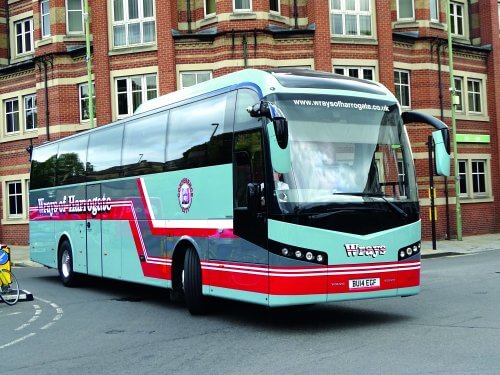Responding to Transport for the North’s consultation on its upcoming decarbonisation strategy, the CPT has called for modal shift to be prioritised to reach net zero goals.
The Committee on Climate Change forecasts that by 2030 we need to see around one in 10 car journeys taken by bus instead to remain on track for net zero by 2050. A key factor often cited as deterring people from catching the bus is unreliable journey times, and measures that keep buses out of traffic, including bus only roads, traffic signalling and priority at junctions are necessary, the CPT says, adding that alongside investment in bus priority, other measures that will encourage bus travel must be examined. These might include Clean Air Zones which include cars and road user schemes including road pricing and congestion charges that make cars pay whilst leaving buses and coaches exempt. CPT Regional Manager Andrew McGuinness said: “To reduce carbon emissions from transport we need to prioritise encouraging people to choose greener modes of travel, such as the bus.
“Measures that keep buses out of congestion and improve bus journey times will make people feel confident that they can rely on the bus to make their journeys on time. We must also incentivise people to swap their car journeys for one by bus, which can be done by introducing policies that charge car users, such as road pricing schemes and ensuring that Clean Air Zones include cars.”
CPT’s response also highlighted that the draft decarbonisation strategy failed to acknowledge the benefits of coach travel. A 15% increase in coach passenger journeys by British people each year could lead to approximately 47 million fewer cars on the road, saving over a quarter of a million tonnes of carbon dioxide, it believes. For the industry to play its full role support must be in place to enable and encourage people to travel by coach, with coach-friendly measures such as adequate coach parking and drop off and pick up points for passengers.
Andrew continued: “It was disappointing that coach was not mentioned in the draft decarbonisation strategy, when coaches can take up to 50 cars off the road and they will play an important role in the journey to net zero carbon emissions. To get more people on board we must see this strategy including policies that make it easy for coaches to access tourist attractions and the city centre. These measures will encourage people to travel by coach, instead of by car, helping to reduce carbon emissions.”


